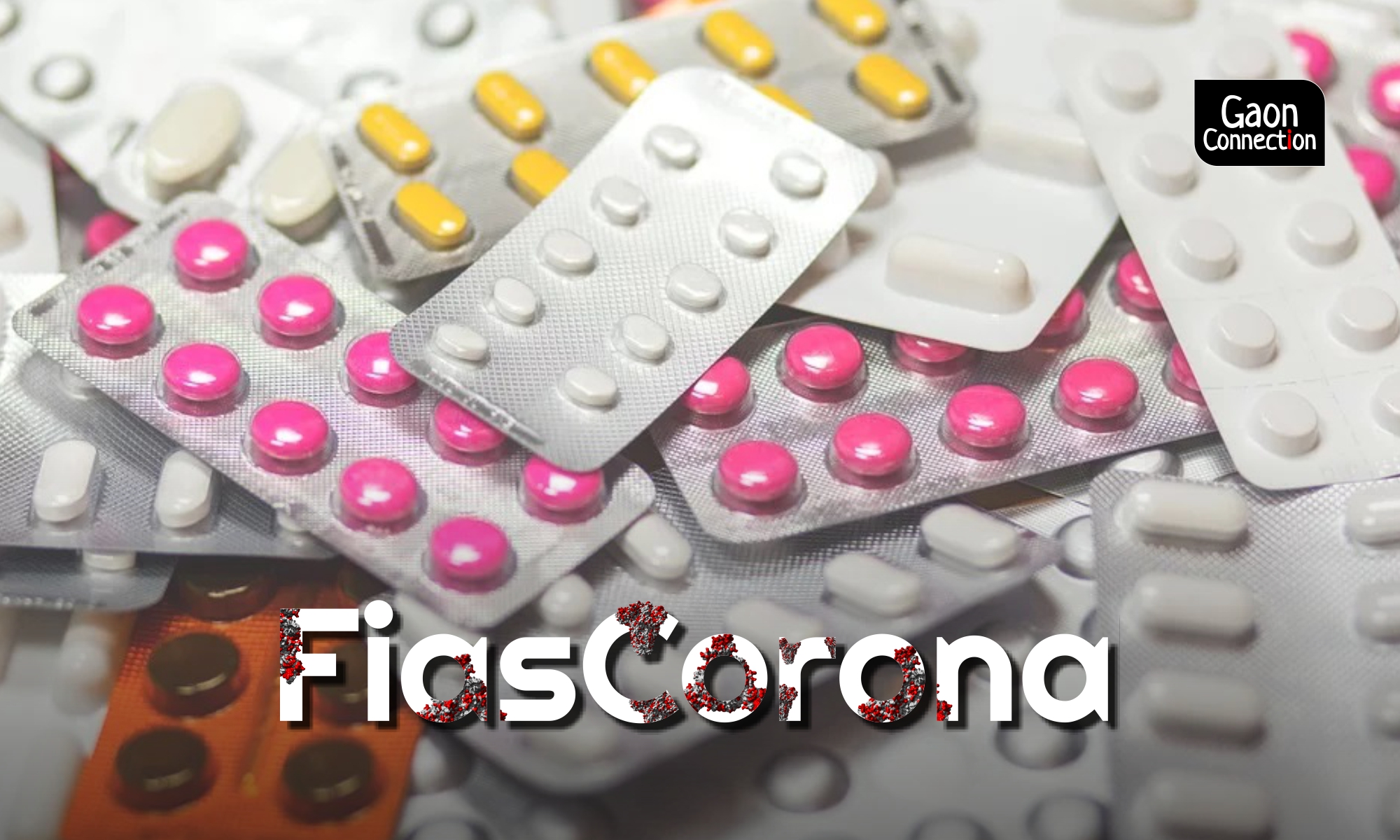“If the raw material import from China is not resumed soon enough, the prices of the medicines would shoot up in a few days. We are still manufacturing drugs by purchasing raw materials at more than double the rate, but for how long will it continue! Despite our making medicines, there is no sale. Buyers refuse to buy such expensive medicines. What do we do?” asked Jagdeep Singh, who owns a drug-making factory at Mohali in Punjab.
Jagdeep, the chairman of the Punjab Drug Manufacturers Association and owner of the Perex Pharmaceuticals Company, is deeply troubled due to coronavirus emerging from China about 3,600 kms away. In China, the virus has stalled the production of raw materials used to make medicines worldwide. It is having a direct impact on India’s drug industry.
Pharmaceutical companies in India import bulk drugs or active pharmaceutical ingredients (APIs) from China. The API can be understood as the raw material required for making medicines. It is used to make a tablet, capsules and syrups. Until the Coronavirus outbreak, 80 per cent of the API came in India came from China, which is presently stopped. Because of this, the pharmaceutical companies have to buy the API at double the price.
The central government has also taken an urgent step in view of the problem of disruption of the supply of raw materials from China. The government has banned the export of 26 medicines to avoid a shortage of medicines in the country. According to a notification issued by the Directorate General of Foreign Trade (DGFT), the export of 26 drugs such as paracetamol, metronidexazole, vitamin B1, B12, tinidazole, antibiotics and TB drugs has been prohibited.
India restricts exports of 26 pharma formulations and drugs. #Coronavirus
— ANI (@ANI) March 3, 2020
The government’s decision to ban the export of essential medicines makes it clear that the situation is really critical. Such a decision was taken to preserve the stock of these essential medicines. Talking about the crisis in the drug industry, a professor of the National Institute of Pharmaceutical Education and Research (NIPER) said on condition of anonymity: “This is not a positive situation, but an emergency situation. India’s drug trade depends entirely on China. We are not self-reliant in the case of API. Now, when this situation has arisen, the government is calling meetings and talking about the need to become self-reliant in this area. However, it is absolutely out of question right now.”
“Bulk drugs or active pharmaceutical ingredients (APIs) are first purchased in the drug industry. After buying the API, the companies make its formulation. China was a provider of API at a cheaper price. Now, when the API supply is hampered because of the lockdown, the companies are buying APIs at higher prices from elsewhere and this is directly affecting the cost of medicines. As it is just the onset, the retail medicines will not see much difference in the prices, but they will also become costlier if it continues for more days. The impact that is still confined to traders will also be transferred to the common citizens in the coming hour,” added the NIPER professor.
The traders’ burden is the fact that even though medicines in the retail market are not sold at an increased price, they have become costlier in the wholesale market. Aminabad, which is in Lucknow, Uttar Pradesh, has a wholesale market for medicines. In this market, a Paracetamol tablet of Cipla company was earlier priced at Rs 5.20 which is now sold at Rs 5.70. Similarly, Amoxicillin a life-saving drug’s one tablet cost previously Rs 6.25 and now Rs 7.25.
Talking about the increased prices, Anil Upadhyay, general secretary of the Uttar Pradesh Surgical Association and wholesaler of medicines, said: “There hasn’t been any increase yet in the MRP (best retail price) of retail medicines. Medicines in the wholesale market are, however, being sold at an increased rate. If such a situation continues, the MRP will have to be soon hiked.”
Anil added: “China’s lockdown has also deeply affected surgical goods. There are also a lot of surgical goods procured from China. These include masks, blood sugar strips, thermometers, surgical sticks, blades, gloves. Due to non-supply of these goods, the stock in the market is decreasing.”
How expensive has the API become?
There is also a question of how expensive the API has become because of the disruption of raw material supply from China. The answer is given by Jagdeep Singh, owner of the Perex Pharmaceuticals Company, who said: “The API of paracetamol, the most common drug used in fever, was Rs 265 a kilo, two months ago. Now, the price has gone up to Rs 450 per kilo. It is a surge of about 60 to 70 per cent.”
“Similarly, Montelukast salt is used to make allergy drugs and cost Rs 29,000 a kilo earlier. Now, the price has doubled to Rs 58,000. Also, the raw material for Nimesulide cost Rs 500, which has shot up recently to Rs 1,500 per kilo,” he added.
The increased price of the API makes it evident that the drug-making companies are making costly deals. When companies get costly goods to make medicines, the impact will also filter down to their products. Meanwhile, currently, companies and traders are showing the effect. If the situation continues, the increased prices of medicines can also upset the common man in the days to come.
Jagdeep said: “Coronavirus has severely upset the drug business. We are making medicines with APIs at an increased price, but our customers are unwilling to take up the goods. They clearly say that they will not buy costly goods. There are so many companies whose consumer base is broken. May this Coronavirus menace be over soon, only then can we breathe a sigh of relief.”


















